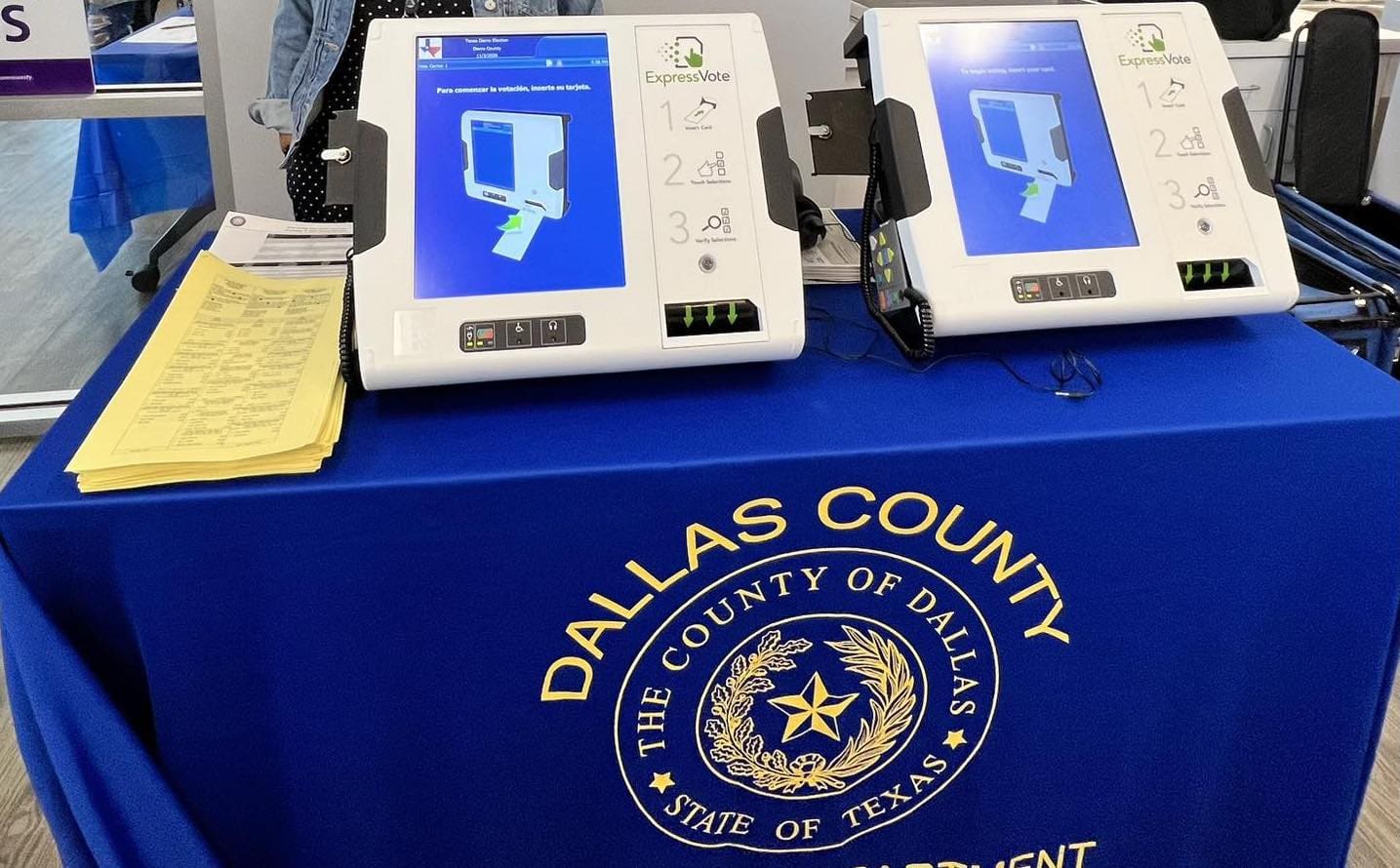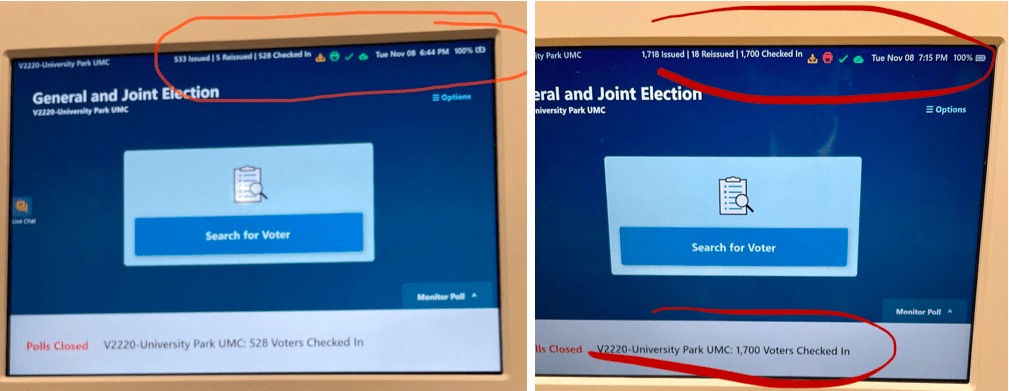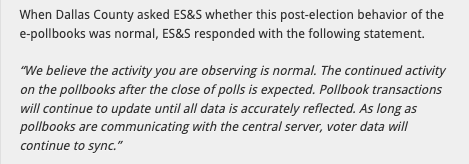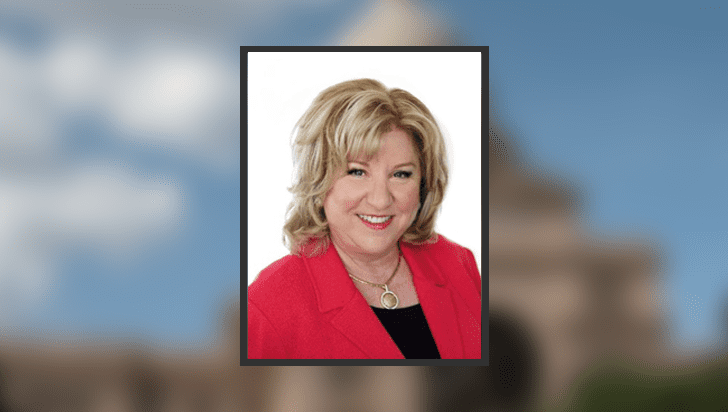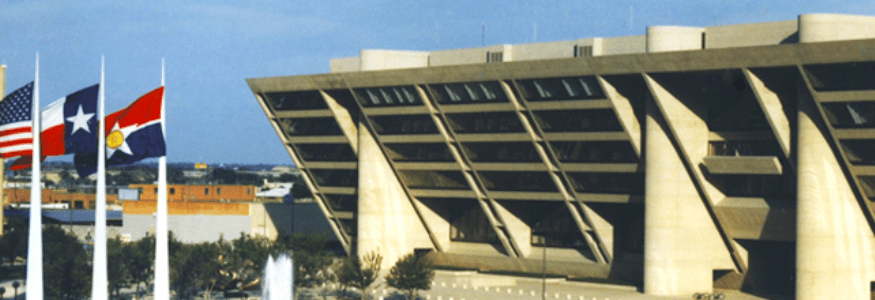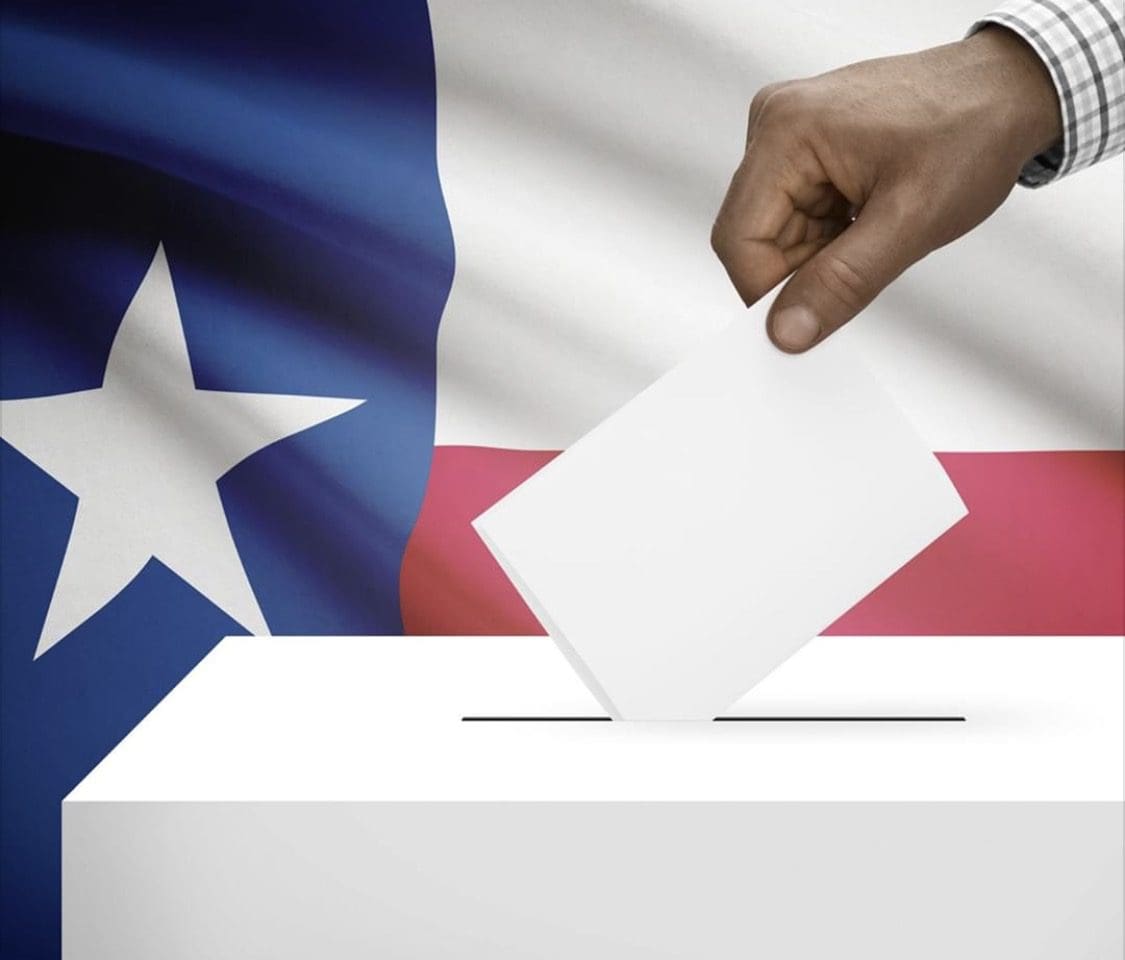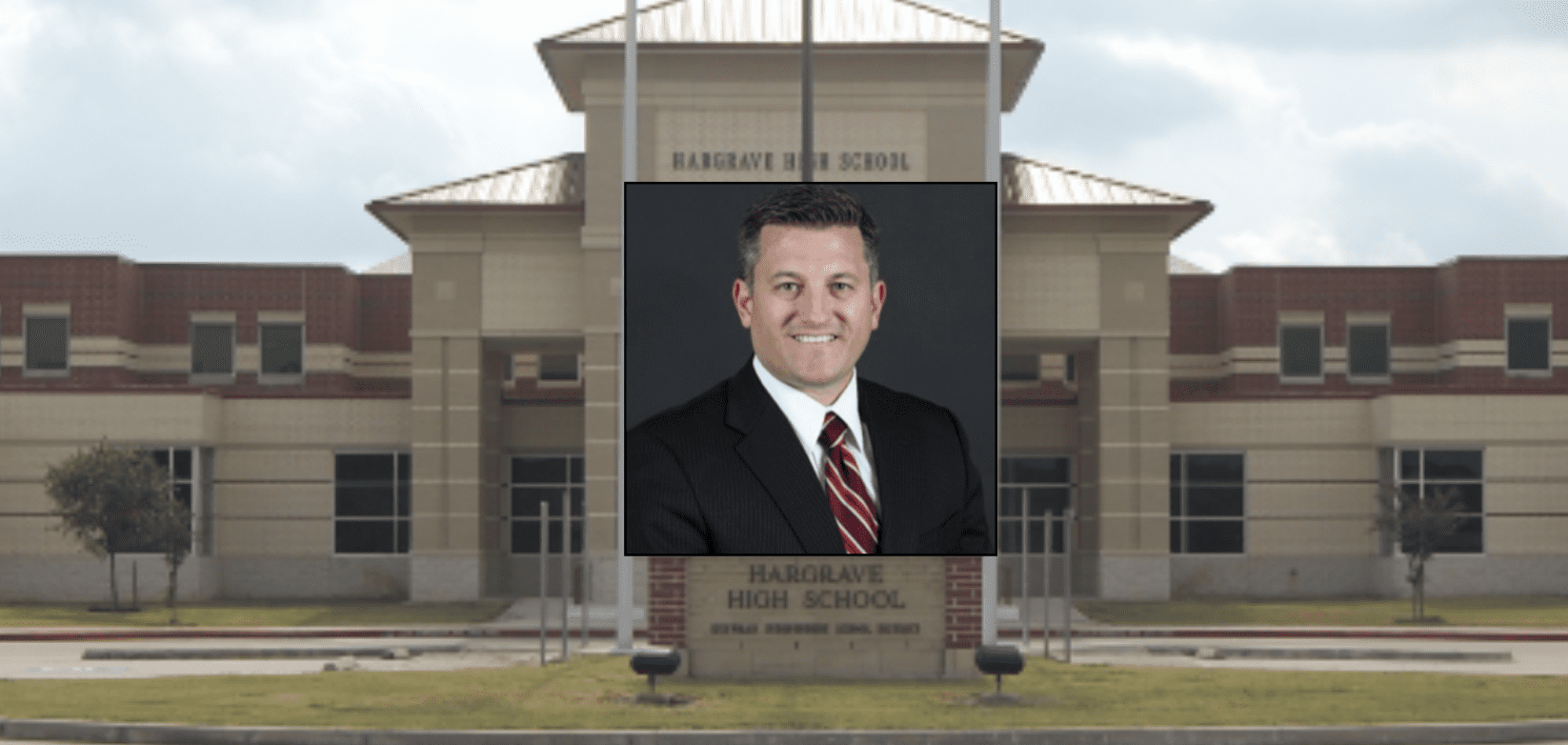On Tuesday, Dallas County officials certified the results of the November 8 election.
Yet county election officials have failed to adequately explain unusual activity seen on electronic pollbooks at the end of Election Day, causing voters to question the accuracy of the canvassed results.
Poll workers at multiple voting locations reported seeing the numbers of voter check-ins displayed on their pollbooks mysteriously start increasing as they were closing the polls at 7 p.m.—and in some cases, even before the polls closed.
Election clerks at the University Park United Methodist Church polling location took pictures and video of the pollbooks as the numbers were changing before their eyes.
At 6:35 p.m.—25 minutes before polls legally close—one of the 10 pollbooks in use at the location froze, according to an affidavit from one of the clerks:
At the time, the pollbook showed an accurate total of 365 ballots issued from that clerk on that computer.
At 6:44, the clerk took a screen shot of a still frozen pollbook, still showing the message “POLL CLOSED” but with the voter increase to 533 (an increase of 168 voters that took place while the pollbook was shut down).
She said the voter check-in number continued climbing after the polls officially closed:
At 7:15PM, the number rose to 1,718, an increase of 1,353 voters in 40 minutes on a machine that was frozen and unresponsive in any way except to record escalating voters.
The inflated voter check-in counts were well beyond both the number of voters actually processed by the poll workers—documented by paper poll lists and sign-in sheets, as well as cast ballot totals on the voting machines—and the number that could possibly be processed on one pollbook during the 12 hours polls were open.
As images of the irregularities circulated on social media, poll workers at other locations reported seeing the same mysterious increase in voter check-ins appear on their pollbook screens after the polls closed.
Dallas County Elections Administrator Michael Scarpello responded to questions about the incidents via the elections office website’s “Rumor Control” section:
Dallas County’s ExpressPoll e-pollbooks functioned accurately, but slowly, and correctly recorded the number of voters who were issued ballots on Election Day.
The elections office claimed the check-in numbers added after hours were due to a “delay” in downloading transactions of voters who checked in at polling places throughout the county.
Yet those “transactions” would not alter the number of voters checked in on a specific poll book, and should not show hundreds of additional voters checking in at a polling place that has no paper records of that many voters.
Scarpello deferred to the pollbook manufacturer, ES&S, to explain if the activity was “normal.”
The elections office said any “discrepancies” discovered while preparing the final canvass documents would be investigated and explained.
The final election reconciliation form dated November 22 shows an unexplained discrepancy of 209 more Election Day in-person voters (213,358) than the number of Election Day ballots counted (213,149)—far smaller than the number of additional check-ins that appeared on just one pollbook on election night.
The Election Day roster of voters posted on the elections office website shows a total of 2,461 voters checked in at the University Park voting center (identified as V2220), two fewer than the 2,463 the clerk there told Texas Scorecard she recorded from all the pollbooks combined.
The unusual pollbook activity witnessed at multiple Dallas County voting locations on election night may or may not have affected the results, but the post-closing increases in voter check-in numbers have yet to be explained.
Dallas isn’t the only Texas county where election officials have some explaining to do.
Harris County Elections Administrator Clifford Tatum is facing a criminal investigation and a civil lawsuit for mismanaging the November 8 election. Voters say Tatum “needs to be held accountable for repeatedly violating Texas election law.”
Harris and Dallas counties account for a quarter of the state’s registered voters.
Until voters receive explanations of election irregularities, and assurances that issues have been resolved, they will continue to question the results.
Full transparency and accountability are required to rebuild voters’ confidence in elections.
No ads. No paywalls. No government grants. No corporate masters.
Just real news for real Texans.
Support Texas Scorecard to keep it that way!
